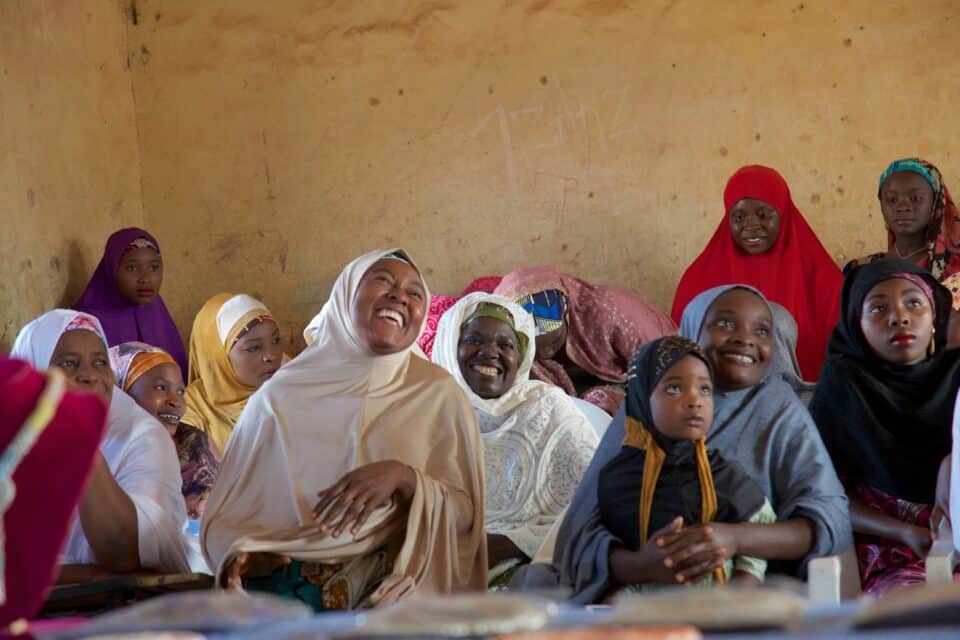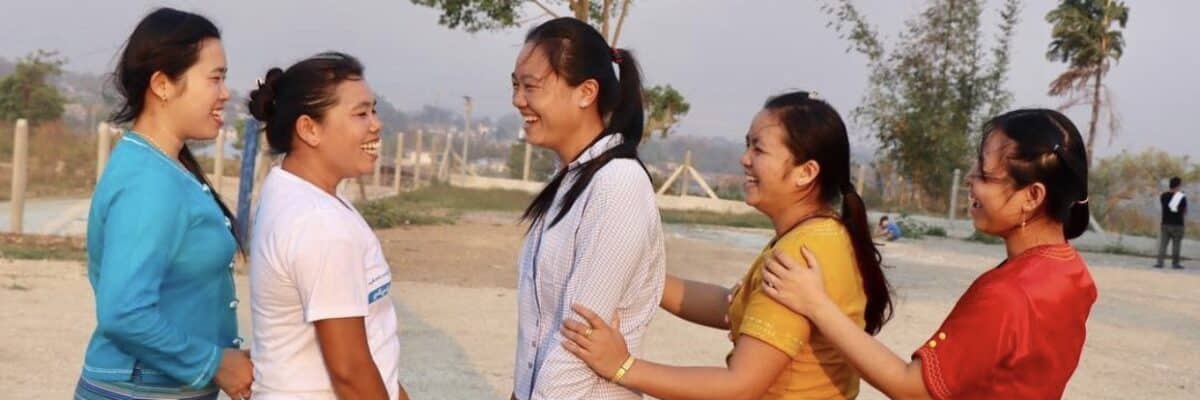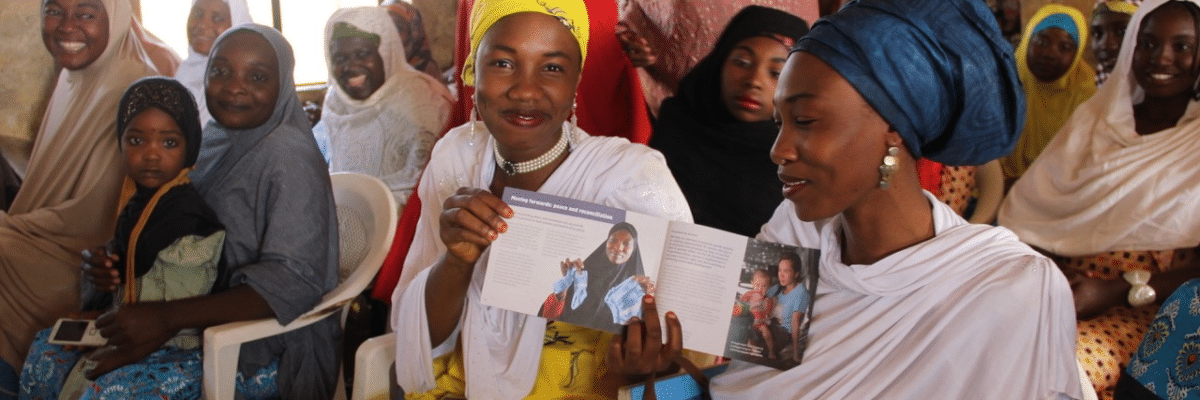Help our local partners realise their vision of hope for their communities

According to the official website for International Women’s Day, the annual celebration is an opportunity to recognise women’s achievements, raise awareness about gender-based discrimination, and take action to drive gender parity.
HART supports our partners in working towards these aims daily. On 8 March, we want to highlight the unique challenges facing women in two of our partner countries, as well as the women taking practical action to resolve gender-related issues head-on.
As we celebrate International Women’s Day in the midst of continuing humanitarian disasters in Syria, Nagorno Karabakh, Burma, Nigeria and many more of our partner locations, it is crucial to recognise the disproportionate impact of conflict and crisis situations on women and girls. For example, gender-based violence is now recognised as a tactic of war; the UN Human Rights Council estimated in 2015 that 70% of women and girls in humanitarian contexts have experienced gender-based violence; and approximately one in five refugee or displaced women in complex humanitarian settings have experienced sexual violence. Neither are women in peaceful states free from systematic inequality or sexual and gender-based violence. The Fawcett Society’s 2018 Sex Discrimination Law Review found that 52% of women in the UK have experienced sexual harassment in the workplace, and in 2016, there were over one million female victims of domestic violence in England and Wales alone.
As we recognise the gender-specific forms of violence in the context of conflict, we must also recognise women as survivors, leaders, educators and peace-makers. HART champions the participation and leadership of women in projects across all our partner locations.

Closing the Gender Health Gap: SWAN in Burma
A key tenet of women’s empowerment is their increased access to healthcare. As Arne Carlsen, Director of the UNESCO Institute for Lifelong Learning notes, improving health literacy “means enabling women…through education, to take control of their own health and well-being as well as to determine their own futures.”
Our partners at the Shan Women’s Action Network (SWAN) recognise the importance of providing accessible healthcare for driving gender equality in Burma. The Women’s Wellbeing Programme (WWP) trains health workers in Shan State to provide ante-natal and post-natal healthcare to Shan women. The programme also provides training in reproductive health and family planning, helping SWAN to support women and their families in remote areas who are less able to access health education.
From August to December of 2022, SWAN health workers conducted reproductive health awareness training in 15 villages across Shan State. A total of 487 people participated, 443 of which were female. Moreover, between July and December 2022, a total of 73 women accessed SWAN’s pre- or post-natal care services, and 683 girls attended SWAN-led school health activities.
SWAN were founding members of the Women’s League of Burma – an umbrella organisation comprising 13 women’s groups in Burma. They also provide crucial services such as safe houses, counselling, and vocational training for migrant women and children in crisis situations.
Their courageous endeavours under repressive military rule are integral not only to closing the gender health gap, but to women’s empowerment more widely.

Peacebuilding and financial freedom: Mai Adiko Peace Project in Nigeria
In northern Nigeria, Christian-Muslim religious conflict has existed since the 1950s, with more attacks, abductions, and incidents of sexual and gender-related violence than could ever be covered by the media.
In Jos, the Mai Adiko Peace Project – also known as Women for Peace – was launched by the Diocese of Jos to reconcile the Christian and Muslim communities in Rayfield, an area that had witnessed widespread violence and devastation. In 2013, Saturday morning meetings were started for Christian and Muslim women, where entrepreneurial skills were taught. When the meetings began in March, there were around 40 women and youths attending, but by June there were 118 female attendees – 80 Muslims and 38 Christians.
Not only do these meetings provide training in skills such as sewing, reading, and computing, but attendees are also helped to generate an income for themselves. Classes are taught in soap-making for supplying to shops, and women are taught how to cook ceremonial dishes so that they can be hired to cater for events. Interest-free loans are also given to women so that, for example, basic cooking equipment can be bought to start their catering services.
HART’s in-country partners, the Diocese of Jos, note the progress made between the religious groups: Muslims and Christians work together, learn skills from each other, share food together and visit one another. Crucially, through peacebuilding and reconciliation, women from both religions have gained skills that can be used to achieve financial independence.
Set against the backdrop of continued ethno-religious struggles for territory, economic opportunities, and agricultural resources in Northern and Middle-belt Nigeria, Women for Peace is achieving the twin victories of peacebuilding and women’s empowerment, illustrating that:
Africa is a place where the people do not need limp gifts of fish but sturdy fishing rods and fair access to the pond.
We are proud to work alongside enterprising women, and to support their participation and leadership in HART’s projects overseas. On this International Women’s Day, we recognise the challenges faced by women and girls, and share our deepest thanks for the work of groups such as SWAN and Women for Peace in advancing the world towards the goal of equality.